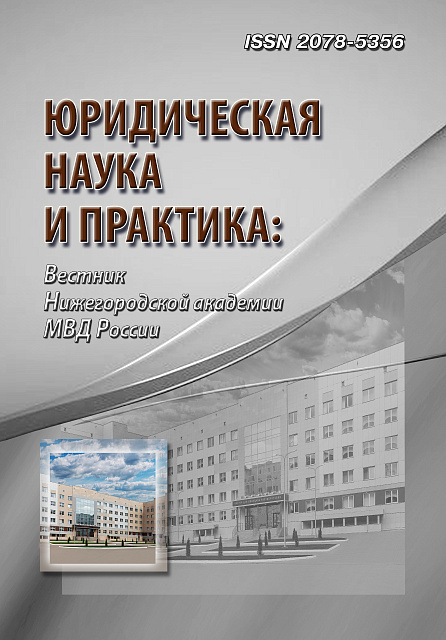The article is devoted to the study of the phenomenon and concept of the digital state. The general concept and meaning of digitization in public administration is revealed. The problems of relevant interpretation and the limits of applicability of this concept to public administration are explained. The author’s concept and definition are presented, explaining the concept, nature and ontology of the digital state. The author suggests to consider the digital state in 4 interpretive projections: 1) as an ecosystem of operational, multi-service and proactive state digital super-services; 2) as an integrated computer-software meta-platform (platform system); 3) as an organizational and technological approach and corresponding paradigm; 4) as the digital ontology of state-building and functioning, public administration and public policy. According to the author’s interpretation, the concept of the “digital state” structurally includes the concepts: 1) the concept of the “digital government”; 2) the “digital democracy” concept; 3) the concept of the “digital justice”; 4) the concept of the “digital electoral technologies”; 5) the concept of the “digital public control over public administration”. The article details the author’s concept of “digital government”. The article is based on application of research methods of analysis and synthesis, induction, deduction and abduction, classification and formalization; through application of research methods, the essential descriptive characteristics of the phenomenon and the concept of the digital state were revealed.
digital state, digitization in public administration, general theory of public administration, digital government, digital law
1. Tomlinson J. Justice in the Digital State: Assessing the Next Revolution in Administrative Justice. Bristol: Policy Press, 2019. xiii; 99 p.
2. Müller V. C. What is a digital state? In: The 6th AISB Symposium on Computing and Philosophy: The Scandal of Computation — What is Computation? / Editors: Mark Bishop and Yasemin J. Erden. Exeter: University of Exeter, 2013.
3. Digital State: How the Internet is Changing Everything / ed. by Simon Pont. London: Kogan Page Publ., 2013. xii; 241 p.
4. The Ministry of Digital Development, Communications and Mass Communications of the Russian Federation offers to allocate 526 million rubles to popularize the digital state. URL: https://tass.ru/nacionalnye-proekty/6723004 (accessed 11.06.2024).
5. Digital Public administration. https:///digital.gov.ru/ru/activity/directions/882/ (accessed 11.06.2024).
6. The OECD Digital Government Policy Framework: Six dimensions of a Digital Government (OECD Public Governance Policy Papers, no. 2). OECD. Paris: OECD Publ., 2020. 39 p.
7. Ubaldi B. Le, Fevre E. M., Petrucci E. et al.: State of the art in the use of emerging technologies in the public sector (OECD Working Papers on Public Governance, № 31). Paris: OECD Publ., 2019. 74 p.
8. Davies R. eGovernment: Using technology to improve public services and democratic participation. Brussels: European Parliamentary Research Service, 2015. 24 p.
9. Pearce L. New Government, Digital Government: Managing the Transformation. Future Challenges for E-government. 2004. Discussion paper no. 20, pp. 136–149.
10. Ponkin I. V., Lapteva A. I.: Pravo i tsifra: Mashinochitaemoe pravo, tsifrovye modeli-dvoiniki, tsifrovaia formalizatsiia i tsifrovaia onto-inzheneriia v prave: Uchebnik [Law and Digital: Machine-readable law, digital twin models, digital formalization and digital onto-engineering in law: Textbook / Consortium “Analytics. Law. Digital”]. Moscow: Buki Vedi Publ., 2021. 174 p. URL: http://moscou-ecole.ru/wp-content/uploads/2021/03/Ponkin_Lapteva_Law-and-Digital-2021.pdf. (accessed 11.06.2024).












